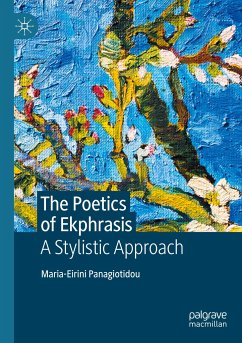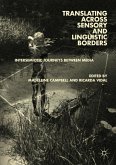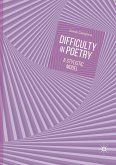This book provides a stylistic and cognitive poetic account of ekphrastic poetry (poetry whose subject matter is predominantly artworks and images), examining the linguistic processes through which works of art can become literary objects. The author sheds light on the workings of ekphrasis at a textual level, while also considering the cognitive and psychological effects of reading ekphrastic poems, developing cognitive and stylistic analytical frameworks grounded on the four principles that govern ekphrasis: representation, narrativization, transposition, and collaboration. This book will be of interest to academics and practitioners in various fields, including literary critics, art critics, rhetoricians, poets, visual artists, and stylisticians.








